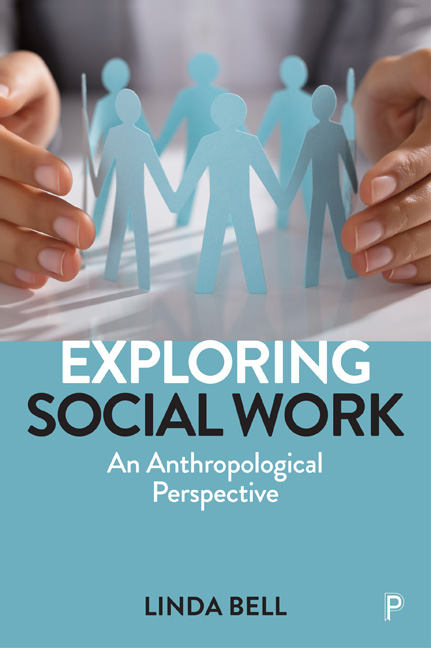Book contents
- Frontmatter
- Dedication
- Contents
- Acknowledgements
- Preface
- 1 Introducing Social Work: Who are Social Workers? Why do we Need Them?
- 2 Getting Involved: An Anthropological and Auto-Ethnographic Journey
- 3 Time and Change: UK Social Work and Comparative European Welfare Policies Since 1990
- 4 Becoming: Being Admitted, Educated and Trained in Social Work
- 5 Growing: Experiencing Social Work Education and Socialisation
- 6 Identifying
- 7 Valuing and Transgressing
- 8 Relating and Partnering: Social Workers, Clients/Service users and other Professionals
- 9 Knowing and Evidencing: Building a Research Base, Mapping and Modelling
- 10 Organising: Influences of the state, Organisations and Wider Social Policies
- 11 Symbolising: Cultural Representations in Theory and in Practice
- 12 Changing: The Future – Social Work in Wider Society
- References
- Index
5 - Growing: Experiencing Social Work Education and Socialisation
Published online by Cambridge University Press: 04 March 2021
- Frontmatter
- Dedication
- Contents
- Acknowledgements
- Preface
- 1 Introducing Social Work: Who are Social Workers? Why do we Need Them?
- 2 Getting Involved: An Anthropological and Auto-Ethnographic Journey
- 3 Time and Change: UK Social Work and Comparative European Welfare Policies Since 1990
- 4 Becoming: Being Admitted, Educated and Trained in Social Work
- 5 Growing: Experiencing Social Work Education and Socialisation
- 6 Identifying
- 7 Valuing and Transgressing
- 8 Relating and Partnering: Social Workers, Clients/Service users and other Professionals
- 9 Knowing and Evidencing: Building a Research Base, Mapping and Modelling
- 10 Organising: Influences of the state, Organisations and Wider Social Policies
- 11 Symbolising: Cultural Representations in Theory and in Practice
- 12 Changing: The Future – Social Work in Wider Society
- References
- Index
Summary
In Chapter 4, we first examined some social workers’ motivations for embarking on a social work career; then, via an example from 1990s’ England, we also looked at how social work education is ‘constructed’ from the point of view of some of those controlling or implementing educational policy in the social work field. We noted the growing influences on social work in the 1990s of health policy, of interprofessional and multi-agency approaches, and of attempts to extend the influence of users of services and carers, in tandem with evolving political policies. Underpinning all of this discussion are the continuing issues of power and control (who decides what and how people learn and practise).
In this chapter, I want to return to the experiences of those becoming socialised into social work, and of the educators who participate in this socialising. In my recent interviews with social workers across Europe, I found that about half of them (like me) had had some involvement with social work education or training, in addition to engaging in social work practice, and that for experienced workers, this focus on education and/or training was especially significant during the latter part of their careers.
As well as teaching social work students in English higher education for several years, I also had some involvement with exploring the experiences of those who were students, fellow educators and social work practitioners during various research projects. Therefore, this chapter will draw upon some of this material, as well as on my more recent key informant interviews.
Here is a final-year undergraduate social work student in England connecting up the nature of their course and their experiences of learning with their overall understanding of social work:
‘I think there's becoming more and more of an emphasis on selfdirected learning and, I mean, self-directed learning is grand, but the nature of social work is about human interaction and I have concerns about shifting even more to e-learning and stuff like that, where I think we need face to face, and that's where you hear of practice issues, dynamics, how people deal with stuff and you can't really learn that via a computer.’
- Type
- Chapter
- Information
- Exploring Social WorkAn Anthropological Perspective, pp. 61 - 76Publisher: Bristol University PressPrint publication year: 2020

